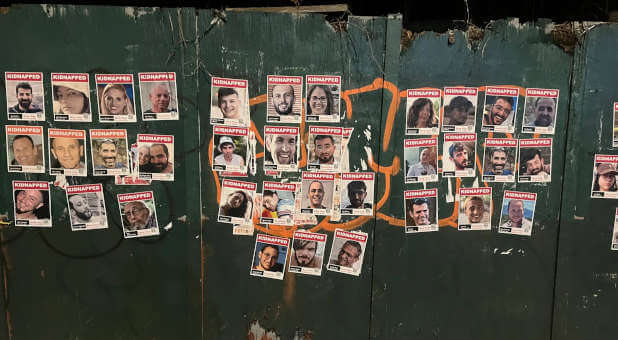As Israeli hostages, kidnapped by Hamas during the Oct. 7 terror attack in southern Israel, are gradually freed under a U.S.-Qatari-Egyptian brokered cease-fire deal, stories of the horrors endured during their 50-plus days in captivity are emerging.
In the Schneider Medical Center in Tel Aviv, a specially assembled team of professionals, led by Dr. Yael Mozer Glassberg, is tasked with treating the returned hostages. Dr. Mozer Glassberg, usually heading the hospital’s liver transplant unit, stated, “It is very, very quiet here,” contrasting the usual sounds of pediatric wards. The team has worked with 22 freed hostages, including 15 children, in a specially created ward.
While physically stable, many hostages lost up to 15% of their body weight, and all are hesitant to raise their voices after their prolonged stay with terrorists. Family members and psycho-social medical teams are providing comfort and support. However, it’s too early to discuss the full impact of their ordeal.
Israeli authorities have requested that hostages and their families avoid sharing in-depth details of their time in captivity due to concerns for the safety of those still held in Gaza. Nevertheless, information that has surfaced reveals the brutal treatment by captors, particularly toward toddlers, young children and the elderly.
Deborah Cohen, the aunt of 12-year-old Eitan Yahalomi, revealed that terrorists forced her nephew to watch raw footage of the Oct. 7 horrors at gunpoint. If he or other children cried, the terrorists threatened them with a gun to keep quiet. Yahalomi, kidnapped from his home, was placed on the back of a motorcycle and driven into Gaza, where people jeered and beat him.
Relatives of the hostages have faced difficulties sharing terror stories from the Oct. 7 massacre, which claimed over 1,200 lives in southern Israel.
Israel’s Ministry of Health reports that 69 hostages have been freed so far, including 51 Israeli citizens and 18 foreign nationals. Thirty are children, 20 are women, and one man. However, nine Israeli children, including a 10-month-old baby, remain in captivity.
Christian Response: Nurturing Healing and Hope in Times of Tragedy
In times of profound trauma and tragedy, Christians can turn to the Bible for guidance on how to respond. The Scriptures emphasize the importance of offering comfort, support, and hope to those who have endured suffering.
1. Comfort Through Prayer
Philippians 4:6-7: “Be anxious for nothing, but in everything, by prayer and supplication with gratitude, make your requests known to God. And the peace of God, which surpasses all understanding, will protect your hearts and minds through Christ Jesus.”
Christians are encouraged to lift up prayers for the victims and their families, seeking God’s comfort and peace in the midst of their pain.
2. Extending Compassion
Galatians 6:2: “Carry one another’s burdens, and in this way, you will fulfill the law of Christ.”
Following the example of Christ, believers can extend compassion and support to those affected by the tragedy. This may involve practical assistance, empathetic listening and a willingness to share in the burdens of others.
3. Offering Hope Through Scripture
Romans 15:13: “Now may the God of hope fill you with all joy and peace in believing, so that you may abound in hope, through the power of the Holy Spirit.”
Sharing uplifting and hope-filled passages from the Bible can provide solace and encouragement to those grappling with the aftermath of a traumatic event.
4. Community and Fellowship
Hebrews 10:24-25: “And let us consider how to spur one another to love and to good works. Let us not forsake the assembling of ourselves together, as is the manner of some, but let us exhort one another, especially as you see the Day approaching.”
Encouraging community and fellowship is vital. Christians can come together to provide emotional and spiritual support, fostering a sense of unity and strength.
In the face of such tragic events, Christians are called to be a source of light, love and hope. Through prayer, compassion, the sharing of Scripture and community support, believers can play a crucial role in helping those affected navigate the path toward healing and restoration.
Join Charisma Magazine Online to follow everything the Holy Spirit is doing around the world!
James Lasher is Staff Writer for Charisma Media.














































